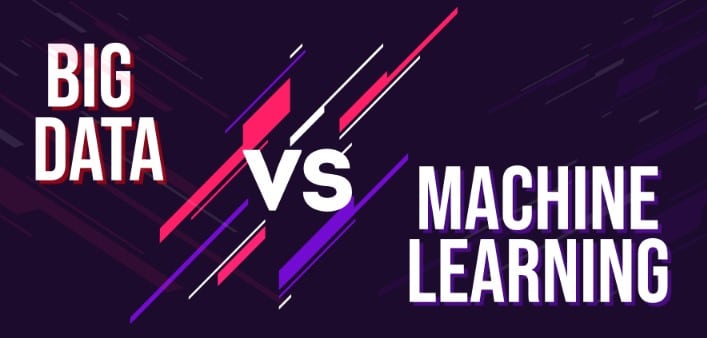In today’s fast-paced digital world, Big Data and Machine Learning are revolutionizing the way we understand and interact with technology. These powerful tools are driving Artificial Intelligence (AI) forward, enabling computers to make decisions, solve complex problems, and mimic human intelligence. In this article, we’ll dive deep into the world of Big Data and Machine Learning, exploring how they’re pushing the boundaries of AI and shaping our future. So, let’s buckle up and get ready for an exciting ride!
Big Data and Machine Learning: Driving Artificial Intelligence Forward
The Power of Big Data
What is Big Data?
Big Data refers to the massive volume of structured and unstructured data generated every day from various sources, including social media, IoT devices, and online transactions. This data, when analyzed and processed, can reveal valuable insights and trends that can drive businesses and organizations to make more informed decisions.
How Big Data Drives AI
AI systems rely on large datasets to learn patterns and improve their performance. Big Data provides the necessary information for AI algorithms to analyze, enabling them to make better predictions, enhance decision-making, and automate tasks.
The Magic of Machine Learning
What is Machine Learning?
Machine Learning, a subset of AI, is the process of training computers to learn from data and improve their performance without being explicitly programmed. It involves developing algorithms that can analyze and identify patterns in large datasets, allowing machines to make predictions and decisions based on those patterns.
How Machine Learning Fuels AI
Machine Learning algorithms are the driving force behind AI’s capabilities. They enable AI systems to learn from experience, adapt to new situations, and improve their performance over time. By leveraging Big Data, Machine Learning algorithms can process and analyze vast amounts of information to make more accurate predictions and decisions.
Applications of Big Data and Machine Learning in AI
Healthcare
Big Data and Machine Learning are transforming healthcare by enabling early disease detection, personalized treatments, and improved patient outcomes. AI-driven medical devices can analyze large amounts of patient data to identify trends and make informed recommendations for treatment.
Finance
In the financial industry, Big Data and Machine Learning are used to detect fraud, predict market trends, and make smarter investment decisions. AI-powered algorithms can process vast amounts of financial data to identify patterns and trends, enabling banks and investors to make more informed decisions and minimize risks.
Manufacturing
Big Data and Machine Learning are revolutionizing manufacturing by optimizing production processes, reducing downtime, and improving product quality. AI-driven systems can analyze large volumes of data from production lines to identify inefficiencies and implement real-time adjustments.
Retail
In the retail industry, Big Data and Machine Learning help companies personalize customer experiences, optimize pricing strategies, and improve supply chain management. AI-powered algorithms can analyze customer data to predict preferences and make personalized recommendations, driving customer engagement and loyalty.
The Future of Big Data and Machine Learning in AI
Quantum Computing and AI
Quantum computing is expected to revolutionize AI by enabling machines to process data and solve complex problems at unprecedented speeds. This breakthrough will pave the way for even more advanced AI applications powered by Big Data and Machine Learning.
Ethical Considerations
As AI systems become more intelligent and autonomous, ethical considerations surrounding privacy, security, and fairness will become increasingly important. Addressing these concerns will be crucial to ensuring the responsible development and deployment of Big Data and Machine Learning-driven AI systems.
FAQs
- What is the role of Big Data in AI?
Big Data provides the necessary information for AI algorithms to analyze and learn from, enabling them to make better predictions, enhance decision-making, and automate tasks.
- How does Machine Learning contribute to AI?
Machine Learning algorithms are the driving force behind AI’s capabilities, allowing AI systems to learn from experience, adapt to new situations, and improve their performance over time.
- What industries are benefiting from Big Data and Machine Learning in AI?
Healthcare, finance, manufacturing, and retail are just a few of the many industries that are benefiting from the integration of Big Data and Machine Learning in AI.
- How will Quantum Computing impact Big Data and Machine Learning in AI?
Quantum Computing has the potential to revolutionize AI by enabling machines to process data and solve complex problems at unprecedented speeds, leading to even more advanced AI applications powered by Big Data and Machine Learning.
- What ethical considerations should be taken into account when developing Big Data and Machine Learning-driven AI systems?
Ethical considerations surrounding privacy, security, and fairness will be crucial to ensuring the responsible development and deployment of Big Data and Machine Learning-driven AI systems.
- What challenges do organizations face when implementing Big Data and Machine Learning in AI?
Some challenges include managing and processing large volumes of data, ensuring data privacy and security, addressing ethical concerns, and developing skilled workforce capable of leveraging these technologies effectively.
Conclusion
Big Data and Machine Learning are driving Artificial Intelligence forward by providing the necessary tools and information for AI systems to learn, adapt, and grow. The applications of these technologies in various industries are creating immense value and shaping the future of AI. However, we must also be mindful of the ethical considerations and challenges that come with the integration of Big Data and Machine Learning in AI systems. By addressing these concerns and pushing the boundaries of what’s possible, we can continue to unlock the true potential of AI and transform the world for the better.
Read More :
